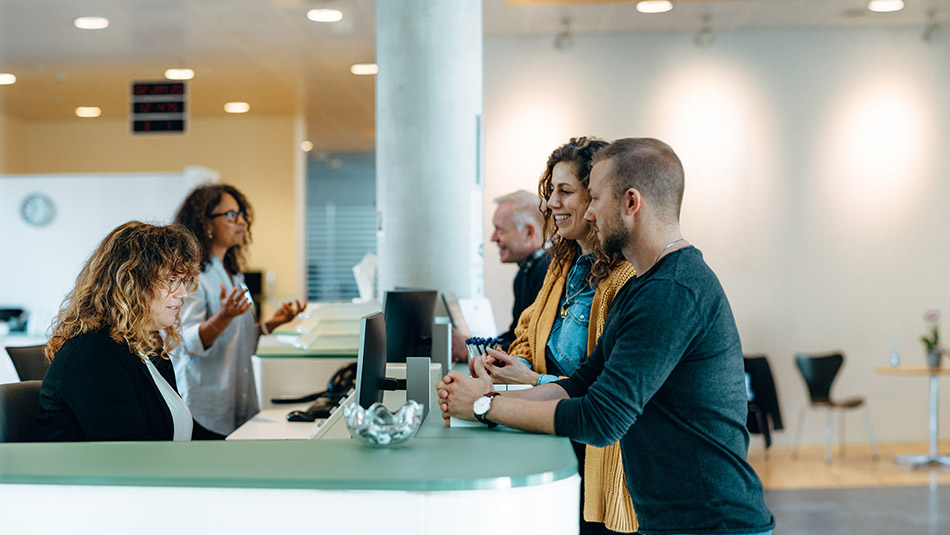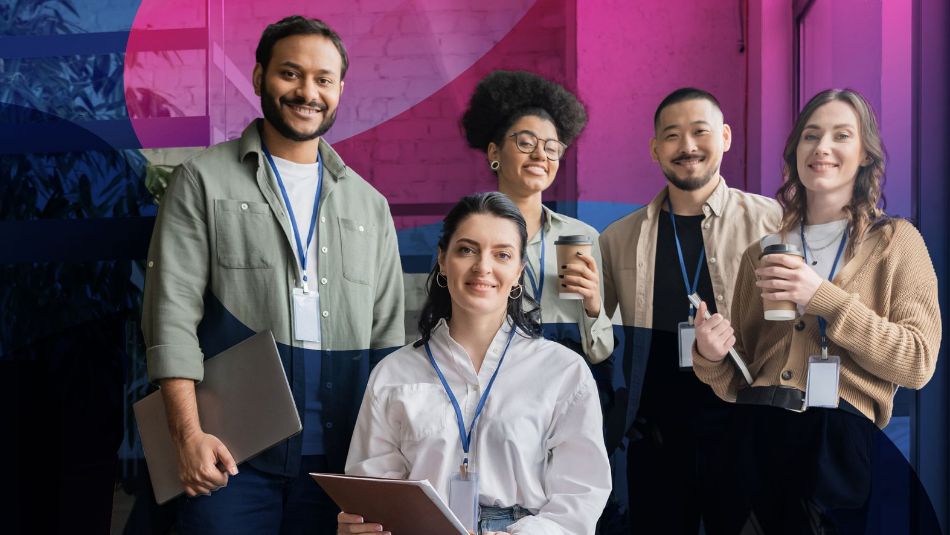More related insights

Closing the feedback loop: a business essential for brands
When Konecta helped a telco client transform its feedback management, the benefits included reduced complaints, reduced contacts, and improved customer...

Five key customer management trends in insurance, from Gen AI to non-life
Across the world, the insurance sector is going through a period of profound change, and it’s happening at great speed....

Konecta’s waste collection initiatives in Colombia: Partnerships with Ecobot and Botellas de Amor
At Konecta, we know that waste management is not only an environmental responsibility but also an opportunity to enhance our...
The Konecta People: let's meet Alejandra Garcia Sposto
Let's meet Alejandra Garcia Sposto, Nearshore and Marketing IBERIA Director of Konecta

Hello Alejandra, thank you for taking the time to answer our questions
- Could you tell us about your current leadership role at Konecta and summarize your main responsibilities? And also tell us what you most like about this role and about working at Konecta?
My current position at Konecta is Nearshore and Marketing IBERIA Director, leading a team that covers Spain, Portugal and the city of Tangier in Morocco. My main objective with the team is currently to grow our activity in both Tangier and Lisbon through international and multilingual projects. I’m also establishing bridges with all the other regions, so we can use knowledge transfer to support their growth. We are also developing marketing and communication pillars to help business development in this region. The business unit I lead was founded a few years ago, with a lot of future potential and focus.
What I like most about my role - and I’d say this is a constant throughout my professional development at Konecta - is the diversity of cultures and projects we engage and connect with. For me, it’s all about the feeling that I’m helping to change realities for the better, and enjoying the satisfaction of bringing together said realities in a common goal. And of course, it’s a pleasure to be able to work with a highly motivated and professional team such as mine.
- Could you tell us how you started out on your career journey towards the point you have reached now? Has your career travelled in a straight line upwards, or have you had any key moments where you changed direction?
My professional career at Konecta started in Latin America, setting up start-ups in 6 different countries, and later supporting some regional corporates. At the time I was living in Brazil and travelled a lot around different countries in Latin America. Then in 2015, I came here to Spain to continue to build that relationship between the Latam region and Corporate, and it was finally after the Comdata integration that I created the business unit I work in today.
Before joining Konecta, I had worked in other sectors such as energy and consultancy. I can confidently say that each step in my career has prepared me for what came afterwards, helping me to enjoy different projects and experiences. My job moves have always been associated with finding new professional challenges after I had reached my project objectives, and they have always involved new developments, regions and/or cultures.
- Are there any particular challenges you have overcome in your career - either because you are a woman or just generally? How did you overcome them?
Every challenge I have overcome has been thanks to my conviction and belief in the objective I had set for myself, to the teams I have worked with, and the thought that I was producing value for the company, my colleagues and myself.
People always say that “Where there's a will, there's a way”, and I completely agree with that. This does not mean one should become obsessed, but whenever there is a problem or circumstance that could prevent us from moving forward, we should not lose sight of our main goal. We should take some time to reflect and, if necessary, rethink the journey.
I have always told my teams that they should not take criticism personally, and that they should always remember they come from different backgrounds. Our main purpose is to transcend that background and keep progressing.
- From your experience, how does Konecta support women to progress their careers? Are there other ways you think women in the workplace could also be supported, both at Konecta or elsewhere?
From my perspective, I find it difficult to answer the question focusing only on women. One of Konecta’s selling points is that if one is willing, there is great scope for entrepreneurship among our employees. I have always considered many of the leaders here in Konecta as entrepreneurs in their own field, which encourages creativity, innovation and the ability to succeed. Konecta encourages this for both men and women. In addition to this culture running across the company, there are several projects in countries such as Peru that promote female empowerment, balance and diversity.
I have to emphasise that while at Konecta, I have never experienced what they call the “glass ceiling”.. On the contrary, I have noticed more self-imposed ceilings. That said, I am perfectly aware that my professional perspective is quite personal!
- Konecta is obviously a very international business, with locations all over the world and a diversity of talent. Has this been a positive help in your own career development, and how can women employees make this very global environment work for them?
As I previously mentioned, my career has always been very international, so Konecta’s multicultural growth, along with the different challenges that brings with it, has allowed me to meet, empathise and combine diverse realities, cultures and countries.
I believe that a set of “feminine" qualities such as empathy, team spirit, communication and perseverance in a globalised environment offer more opportunities for women to stand out in terms of their natural abilities. Even though when I started working on internalisation, the travel and availability demands could be limiting for women with family responsibilities, this is certainly changing, with technology and new ways of working making it easier for professional women to develop in this field. Or so I hope, because I find it fascinating.
- Have there been any individuals at Konecta or previously who have inspired your ambitions and success - by inspiring you or giving you great opportunities or advice or anything else?
Ever since I was young, I have always had what I call a “sponge” attitude; that is to say, absorbing everything I considered valuable for my personal and professional life. And for my whole working life, I have learnt from my bosses, my peers and my teams, especially at Konecta. People like Leonardo Da Vinci, the Universal Man, have always caught my attention, but above all, I am inspired by people who have fought for their beliefs, values and goals. In fact, I have been lucky enough to meet people just like that here in Konecta.
- As a woman leader in the business, are there any ways you are supporting women’s success at Konecta? We’d love to hear your views on what’s possible and what you think works best.
I have always tried to use my position to inspire by example, and therefore, being a woman myself I might have had a bigger impact on the female sex.
But I believe the best way to support each other and ourselves is to start from a position where there is NO discrimination, to progress on our goals and be ourselves. Whenever one tries to mimic an already imposed model without incorporating it fully, it becomes harder to achieve success. But I should say, this is a very personal attitude that has worked for me, but may not be the same for everyone.
- What advice would you give to younger women just starting out on their careers?
Since I was very young, I already knew that I wanted to study and achieve: to become a manager and reach certain objectives. What I can recommend, based on my experience, is for them to be authentic, to know what they want to do with their life and move forward. If they have a clear vision and are doing what they love, opportunities will present themselves, and it is their responsibility to seize them. Challenges will always be there for everyone, that is why one must make the most out of them and learn!
The successful female role models I have met have never considered it a limitation to be a woman. As a result, if anyone wanted to make them feel somehow “different” ’ inside the corporate world because of their gender, they (or I) wouldn’t even have noticed. My best advice would be to “JUST DO IT” (as I believe NIKE once said).